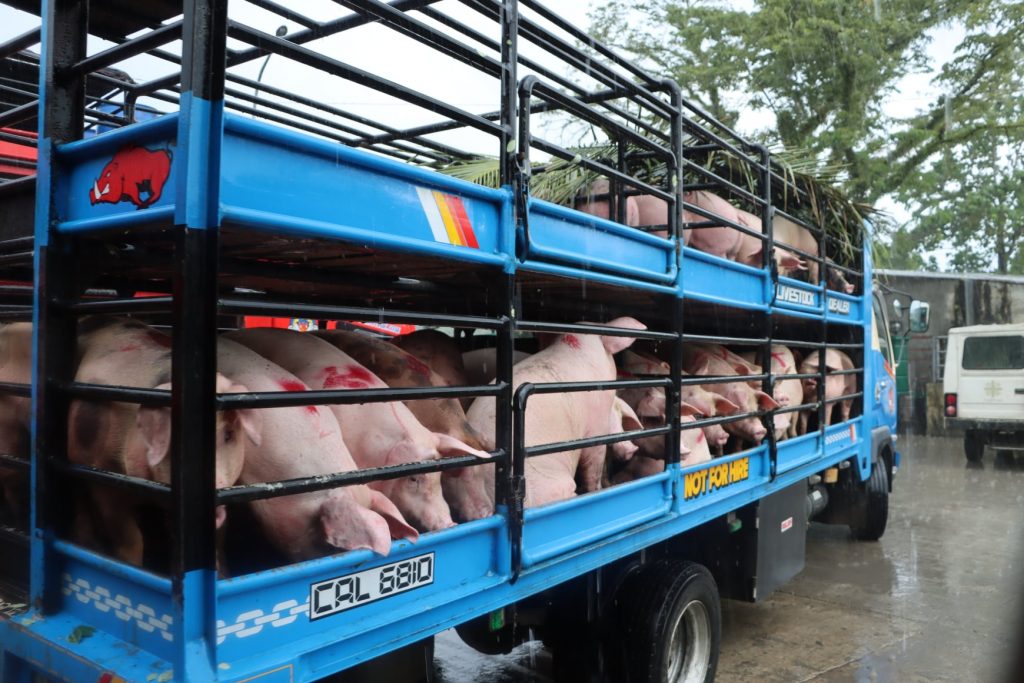Western Visayas has maintained its dark green zone status as African swine fever (ASF)-free region through the continued efforts of the Department of Agriculture 6 (DA-6) and its attached agencies, partners from private organizations and hog raisers associations.
DA-6 has taken the serious lead in implementing measures against the spread of ASF to maintain the region’s dark green zone status. It has heightened the border restrictions as well as the quarantine and disinfection measures in all ports of entry in the region.
It has also involved state universities, the private sector, the Department of Interior and Local Government, and local government units (LGUs) in the implementation of ASF prevention and control through the P4 approach- Person (logistic and manpower support), Programme (ASF Prevention and Control), Pesos (Funding), and Proclamation (relevant ordinances).

According to DA-6 Regional Executive Director Remelyn Recoter, she consistently calls out for continuous collaboration of the Bureau of Animal Industry and municipal agriculturists. She added that hog raisers must be informed about the threats of ASF and lobby for ordinances that shall monitor the transactions of pork products and strict compliance to bio-security measures.
“We cannot compromise the P20-billion hog industry of Western Visayas. Local government units are advised to make their amended bans on pork and pork-based products,” Recoter pointed out.
As of October 2021, the efforts have gained results as a total of 35 local ordinances institutionalizing the engagement of LGUs in the strict compliance monitoring against the entry of ASF have been passed.
Moreover, the agency has trained 132 barangay biosecurity officers and Geotagging Information System for six provinces. All provinces are now submitting ASF negative incidence reports.
Recoter also said that DA-6 has procured two units of RT-PCR machines and is testing an average of 290 samples a week.
Cnsecutive confiscations of pork products identified taken from ASF-infected regions in the Philippines and other countries were also executed by provincial veterinarian offices.
Negros Occidental, from January to October this year, has confiscated about P1.2 million worth of pork products transported from Luzon and Mindanao from airports, seaports and terminals.
NO SHORTAGE OF PORK SUPPLY
Meanwhile, the Negros Occidental Provincial Veterinary Office (PVO) denied reports that there is a shortage of pork supply ahead of the holiday season.
PVO head Dr. Renante Decena said Negros Occidental has a lot of supply of hogs as they release ho0gs in market hubs in Luzon as well as in the neighboring islands of Cebu and Panay.
At present, the price of pork in Negros Occidental remains stable at P250 to P260 per kilo.
“So ang ginapaguwa naton is gadalagan 8,000 to 10,000 a month, and subong ga-increase na ang presyo sa Luzon mga P160 to P170, so that is why damo kita buyer nga gakadto diri,” Decena explained.
He pointed out local producers are capable of balancing the current supply of hogs in the province./WDJ

